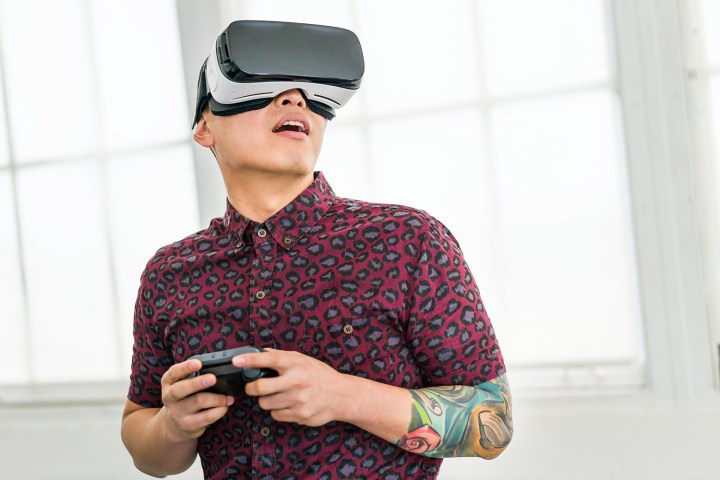
Samsung may be looking to expand its partnership with Microsoft in the mixed reality space, a move that could result in a Samsung-made wireless Windows Mixed Reality headset experience that supports both augmented reality and virtual reality technologies. Given the increased competition in the space — Microsoft’s effort is facing stiff competition from Oculus and Magic Leap, and Apple is rumored to be working on its own mixed reality glasses — the strategic partnership could benefit both companies.
For Samsung, a flagship mixed reality headset experience that is cordless will allow the company to showcase its components business, using internally developed processors, OLED displays, and sensors, one Samsung official told The Korea Times.
The deal would be a major win for Samsung’s silicon business. As a condition for being a partner in Microsoft’s mixed reality efforts, Samsung wants Microsoft to use its processors for Windows Mixed Reality and Mixed Reality Ultra experiences. Currently, Microsoft partners Acer, Asus, Dell, HP, Lenovo, and Samsung create wired Windows Mixed Reality headsets. This could give Samsung similar positioning to Qualcomm, which was the exclusive chip supplier to phone manufacturers that use Microsoft’s Windows Phone and Windows 10 Mobile operating systems. We still don’t know specifics about the wireless Windows Mixed Reality hardware requirements.
Samsung could showcase its wireless mixed reality headset as early as this fall at the IFA 2018 show. This would give Samsung some lead time in the market against rival Apple, which is expected to debut its wireless mixed reality headset in 2020. A successful Samsung launch will benefit Microsoft as it expands its mixed reality ecosystem and attempts to attract more content to the platform at a time when competition is increasing.
Even though Samsung and Microsoft had partnered in the past to launch the Samsung Odyssey Mixed Reality headset, that headset still required a wired connection to a Windows 10 PC. It’s reported that Microsoft had lowered royalty demands from its partners for mixed reality experiences, and Samsung wants more content developers to join consortiums that it leads in relevant segments.
“It’s premature to say how successful Microsoft will be driving a rich ecosystem which will, in turn, drive its adoption to mixed reality,” a second Samsung official said. “But Windows MR is expected to boost the existing VR ecosystem. Because the market is extremely new, Samsung Electronics can understand how the markets go by partnering with Microsoft.”
Additionally, Samsung also partners with Facebook on a mobile VR experience with the Gear VR, a virtual reality headset that works in conjunction with Samsung’s Galaxy line of phones.


